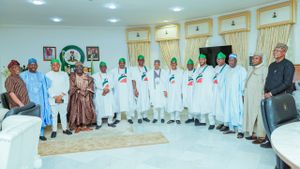The Union Budget 2025 has evoked mixed reactions from India's political leaders, marking another chapter in the nation's economic policy discourse. Presented by Finance Minister Nirmala Sitharaman on February 1, 2025, the budget highlights major reforms, particularly for the middle class, as the ruling party braces for upcoming elections.
Union Home Minister Amit Shah praised the budget, describing it as "the blueprint of the Modi government's vision toward building a developed and best India in every field." Shah emphasized the significance of exempting annual incomes up to Rs 12 lakh from income tax, calling it beneficial for the middle class. He stated, "Budget 2025 is the blueprint... covering various sectors and reforms," applauding the government's comprehensive approach.
On the other hand, criticisms emerged from opposition leaders, particularly from Congress MP Shashi Tharoor. He expressed concern over the budget's neglect of pressing issues such as unemployment. "I think frankly the applause you heard from the BJP benches was for the middle-class tax cut... where is the income going to come from?" Tharoor articulated, underscoring the irony of significant applause at announcements made with each election year to cash in on voter sentiment.
Tharoor's remarks reflect the broader discontent among opposition leaders, who argue the budget appears strategically timed to coincide with upcoming elections, particularly with the focus on the Bihar elections. They assert the government's focus seems misplaced, criticizing the absence of measures addressing the national unemployment crisis.
The budget also rolled out several next-generation reforms aimed at attracting foreign investment, raising the Foreign Direct Investment (FDI) limit within the insurance sector, simplifying tax laws, and reducing duties on intermediaries. These changes point to the government’s attempt to create more favorable economic conditions and increase support for welfare measures.
While government representatives hailed the budget for its potential to boost economic growth and provide relief to citizens, the opposition remains skeptical, questioning the genuineness of these developments. Shah’s celebratory tone stood in stark opposition to Tharoor's cautionary remarks as the debate over the budget unfolded.
Political analysts observe this juxtaposition will likely shape the discourse leading up to the elections. The incorporation of specific tax exemptions was undoubtedly aimed at rallying support from middle-class voters, yet the opposition’s focus on unemployment grievances might resonate deeply with the electorate's sentiments.
Shah, appreciating the newly reformed tax structure, added, "The comprehensive and visionary budget brings to the forefront the government’s commitment to the citizenry, particularly the middle class, who have always been at the heart of PM Modi’s plans." This statement encapsulates the ruling party's strategy as they prepare for electoral challenges on the horizon.
Tharoor's point about unaddressed unemployment raises pressing questions about the budget's capacity to effect real change for average citizens. He remarked, "Unemployment was not mentioned by the Finance Minister," highlighting the irony of offering tax cuts when the underlying issues of job losses and economic distress remain unaddressed. The demand for job creation is likely to resonate with many citizens who feel left out of the economic recovery narrative.
Critics of the budget also argue it lacks comprehensive strategies to tackle systemic challenges, such as income disparity and job creation, factors which they believe are integral to sustaining economic recovery. They warn against overly optimistic portrayals of the budget as merely another political tool for electoral gain rather than genuine fiscal reform.
With the government presenting the Union Budget 2025 amid significant political pressures, the reactions it has garnered reveal broader economic concerns and voter expectations. The discourse will undoubtedly continue as leaders from both sides of the aisle seek to sway public perception leading up to the impending elections. While the ruling party emphasizes development and tax relief, the opposition is poised to leverage dissatisfaction over unaddressed economic issues to galvanize support.
Overall, the Union Budget 2025 encapsulates not just fiscal strategy but also political ambition, reflecting the complex interplay between governance and electoral politics as India stands on the cusp of another electoral season. The diverging opinions among political figures will play a pivotal role in shaping public discourse around the budget's effectiveness and its real-world impact on the lives of citizens.



